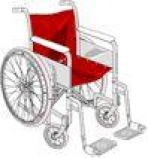All studies
Ethics in the context of disability
Author / Source : Margaret Somerville Published on : Studies Temps de lecture : 26 min.

Ethics is about values, especially shared values, in particular those we adopt as our basic societal values – they are sometimes called norms. The nature of a value is not easy to define. The Oxford English Dictionary defines it within the context of ethics as: “That which is worthy of esteem for its own sake; that which has intrinsic worth”. Another way to describe values might be as “ethical organising principles” – they are principles that we can use to guide us in deciding what is ethi...
The Freezing, Implantation, and Adoption of Embryos
Author / Source : Alain Mattheeuws Published on : Studies Temps de lecture : 30 min.

In fact, we must ask ourselves what gives us the right to plunge an embryonic child into a ‘cold prison?' In 1987 Donum vitae addressed the issue as follows: “The freezing of embryos, even when carried out in order to preserve the life of an embryo—cryopreservation—constitutes an offence against the respect due to human beings by exposing them to grave risks of death or harm to their physical integrity and depriving them, at least temporarily, of maternal shelter and gestation, thus placing th...
 Euthanasia Policy and practice in Belgium
Euthanasia Policy and practice in Belgium
Author / Source : Raphael Cohen-Almagor Published on : Studies Temps de lecture : 1 min.

ABSTRACT: The essay opens with some background information about the context of euthanasia in Belgium. It proceeds by discussing the Belgian law on euthanasia and concerns about the law, its interpretations and implementation. Finally, the major developments and controversies since the law came into effect are discussed. Suggestions as to how to improve the Belgian law and circumscribe the practice of euthanasia are made, urging Belgian legislators and the medical establishment to refl ect...
 The changing of moral focus of newborn screening
The changing of moral focus of newborn screening
Author / Source : President’s Council on Bioethics, USA Published on : Studies Temps de lecture : 163 min.
The changing of moral focus of newborn screening An Ethical Analysis by The President's Council on Bioethics, USA Nearly four million newborns undergo genetic screening every year in the United States. Yet, the process of genetic screening and its ethical implications are not well understood by their parents. Public discussion and education about recent changes in public policy and screening techniques is insufficient for parents to make informed choices. One aim of this white paper is to...
From Homo sapiens to Techno sapiens
Author / Source : Margaret Somerville Published on : Studies Temps de lecture : 12 min.
Professor in the Faculty of Medicine Founding Director of the Faculty of Law's Centre for Medicine, Ethics and Law at McGill University Children's Human Rights to Natural Human Origin Some old and new phenomena – adoption is old, new reproductive and genetic technologies and same-sex marriage are new – have recently thrown the issue of children's rights with respect to their biological origins and biological families into the public policy spotlight and public square debate. Adoption ha...
Life Sciences or Death Sciences
Author / Source : Ronald M. Atlas and Margaret Somerville Published on : Studies Temps de lecture : 37 min.
To successfully reduce the threat of bioterrorism and biowarfare, and to protect public health, especially on a global level, we all will need to engage across boundaries that have separated us in the past. Only by doing so can we seek to ensure that the promise of our unparalleled discoveries of new knowledge in the life sciences is fulfilled and it's potential for unprecedented harm averted. Certainly, no one measure will be sufficient to ensure that science is not misused, or public...
Thinking ethics: doing ethics
Author / Source : Margaret Somerville Published on : Studies Temps de lecture : 25 min.
That we would disagree on at least some of the answers to the ethics issues posed by the new science is to be expected. But rather than bemoan our disagreements, we should welcome them, because they signal that we are engaging in “ethics talk”. That talk requires a broadly based, public conversation on the ethics that should govern scientific and technological innovation and the unprecedented powers over life it has given us. Disagreement is also important because it's in exploring our disa...
Birth, Death & Technoscience
Author / Source : Margaret Somerville Published on : Studies Temps de lecture : 21 min.
We humans have always formed our most important values and sought meaning in life by weaving a metaphorical fabric around the two marker events of every human life, birth and death. Our perceptions of birth, and the values traditionally attached to it, are being challenged and changed, however, by the new technoscience. The “new genetics” debate is the context in which that is occurring. There is also a companion debate about euthanasia focusing on the values that should govern death. Whi...
Ethics: a weapon to counter bioterrorism
Author / Source : Margaret A. Somerville and Ronald M. Atlas Published on : Studies Temps de lecture : 9 min.
The code we propose is built on ethically relevant facts and the substantive and procedural principles of ethics that must govern its interpretation and application. They include nonmaleficence; beneficence; respect for life, especially human life; maintaining trust; embedding ethics in science; establishing a high ethical tone in institutions; acknowledging individual and collective responsibilities; and recognizing and fulfilling needs for ethics review and monitoring, notification of...
“Thou shalt not die in pain”: Treatment decisions at the end of life
Author / Source : Margaret Somerville Published on : Studies Temps de lecture : 1 min.
At a certain point, terminally ill patients — or their representatives — will decide not to continue treatment that has a goal of prolonging life, and to change to palliative treatment that has a primary goal of treating pain and suffering. Note: this is a decision to change the nature of the treatment received and not a decision to cease treatment or an informed refusal of treatment. In the past, it was not uncommon for physicians to say to dying patients, “There is nothing more we can do f...
